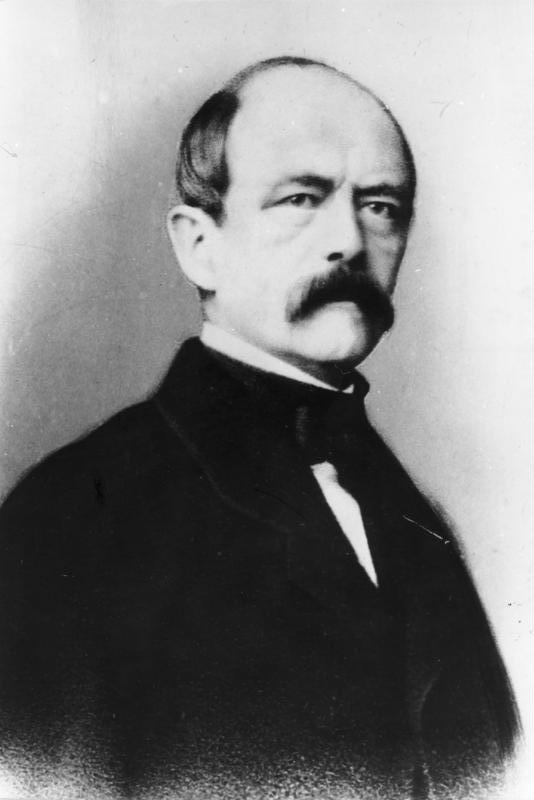On 30 September 1862, Otto Von Bismarck given the speech called Blood and Iron. It was an introduction of a foreign policy called “Blood and Iron Policy”. At that time, he was Minister-President of Prussia, about the unification of the German territories. It is also a transposed phrase that Bismarck spoke near the end of the speech that has become one of his most widely known quotations.
Why Bismarck quoted such a statement in the Speech?
In September 1862, when the Prussian House of Representatives was refusing to support an increase in military spending sought by King Wilhelm I, the monarch appointed Bismarck Minister-President and Foreign Minister. A few days later, Bismarck appeared before the House’s Budget Committee and stressed the need for military preparedness to solve the German Question. He concluded his speech with the following statement:
“The position of Prussia in Germany will not be determined by its liberalism but by its power […] Prussia must concentrate its strength and hold it for the favorable moment, which has already come and gone several times. Since the treaties of Vienna, our frontiers have been ill-designed for a healthy body politic. Not through speeches and majority decisions will the great questions of the day be decided—that was the great mistake of 1848 and 1849—but by iron and blood (Eisen und Blut).”
This phrase, relying on a patriotic poem written by Max von Schenkendorf during the Napoleonic Wars, was popularized as the more euphonious Blut und Eisen (“Blood and Iron”) and became symbolic of Bismarckian Machtpolitik (“Power politics”).
The phrase “blood and iron” has become a popular description of his foreign policy partly because he did on occasion resort to war to further the unification of Germany and the expansion of its continental power. Therefore he became known as “the iron chancellor.”
Meaning of the Statement
This speech was made to make the Parliament understand that for the unification of Germany, the strength of the army which is in their sword made of iron and through their blood which will spill in the war. The blood means the military and the iron means the industry.
This is because he wanted that the parliament should increase the expenditure so that more weapons may be provided to the soldiers and they can win the war.
Bismarck started three wars within six years under the King of Prussian with the motive of unifying Germany. Every time he manipulated such as that the war was started by the opposite party intentionally acting like a victim but every time he was fully prepared to overthrow the opposite party in the war.
Balban’s Blood and Iron Policy
Balban displayed great vigor and energy to follow this policy and saved Delhi Sultanate from the shocks of internal revolts and external invasions. His rise from the low position of a water carrier to the rank of the Sultan speaks of his extraordinary qualities.
Meaning of the policy of blood and iron:
This policy meant being cruel to the enemies, use of swords, harshness, and strictness, and shedding blood. It allowed the use of all sorts of methods of terrorizing the enemies and applying violence upon them. Even before becoming the Sultan of Delhi, Balban had tried these measures to some extent to rise to high posts. He had betrayed Razia and engineered revolts against her. He was responsible for the dethronement of Bahram Shah and the installment of Masud as a King.
Later he joined and removed Masud and enthroned Nasir-ud-Din Mahmud and assumed all the powers of the Sultan by becoming his Prime Minister. By all means, Nasir-ud-Din was a sort of captive of Balban. Thus even before assuming the reigns of administration, Balban had gained sufficient experience to make use of the power of the sword against his enemies.
Frequently Asked Questions
On 30 September 1862, Otto Von Bismarck given the speech called Blood and Iron. It was an introduction of a foreign policy called “Blood and Iron Policy”.
“The position of Prussia in Germany will not be determined by its liberalism but by its power […] Prussia must concentrate its strength and hold it for the favorable moment, which has already come and gone several times. Since the treaties of Vienna, our frontiers have been ill-designed for a healthy body politic. Not through speeches and majority decisions will the great questions of the day be decided—that was the great mistake of 1848 and 1849—but by iron and blood (Eisen und Blut).”



2 thoughts on “Blood and Iron Policy – Synonymous to Cruelty”